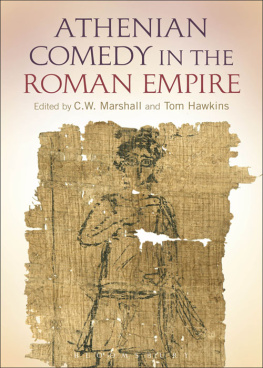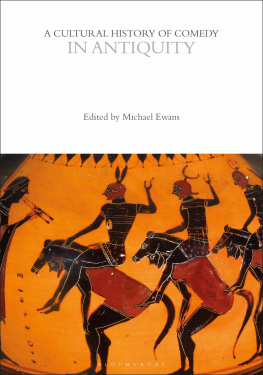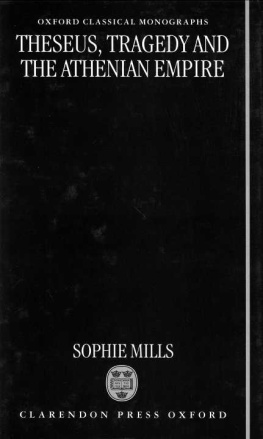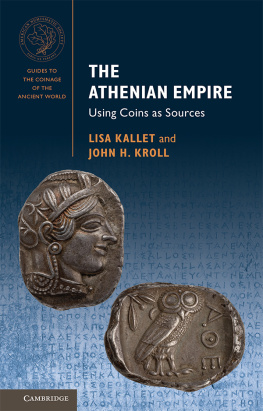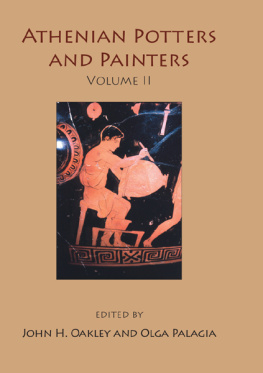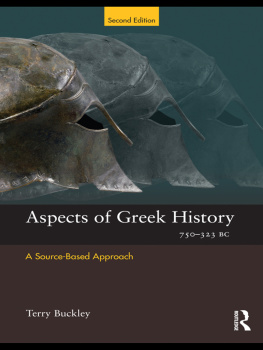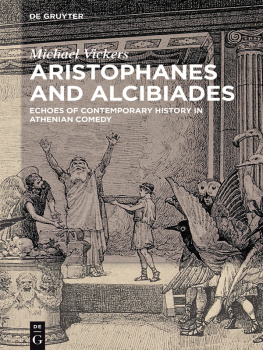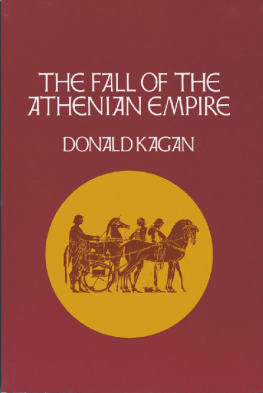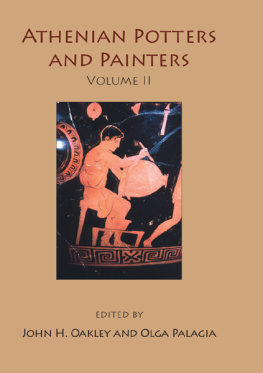Also available from Bloomsbury
No Laughing Matter, edited by C.W. Marshall and George Kovacs
Aristophanes, James Robson
Classics on Screen, Alastair Blanshard and Kim Shahabudin

Contents
This book developed out of a panel at the 2014 annual meetings of the American Philological Association on Greek Comedy in the Roman Empire in Chicago. We are grateful to the APA for the opportunity to develop this theme, to the panel contributors, and to the audience in attendance (three of whom have contributed to this collection). At Bloomsbury Academic, we have been very fortunate to work with Anna MacDiarmid, Alice Wright, and their team. Thanks are also due to Sebastiana Nervegna and Andrew McClellan. C.W. Marshall has been generously supported in part by the Social Sciences and Humanities Research Council of Canada and the Peter Wall Instutute for Advanced Studies at the Univeristy of British Columbia.
Note on transliteration and names
The works discussed in this volume were originally written in Greek and Latin, and most of them have titles in Greek, Latin, and English by which they might be commonly referred. We have chosen, therefore, to refer to ancient works by their common titles, rather than aim for strict uniformity of language. Further, the transliteration of Greek characters into English is not consistently practiced. While each chapter should be consistent with itself, we have not imposed a uniform format for transliteration and names, preferring to allow authors to present a format that they feel best communicates their material.
Every contributor to this volume has benefited from the continued publication of volumes of Poetae Comici Graeci (The Greek Comic Poets). This massive undertaking offers updated texts of the fragments of Greek comedy, as well as the testimonia about each author. Texts from these volumes are commonly cited in scholarly publications using the abbreviations PCG or K-A (the initials of the editors, Kassel and Austin). In this volume, fragments are labeled K-A (e.g. Eupolis fr. 16 K-A) and the volumes are labeled PCG (e.g. PCG VIII).
Tom Hawkins and C.W. Marshall
non medius fidius ipsas Athenas tam Atticas dixerim.
I would say that not even Athens itself was so Attic.
Pliny the Younger, Ep. 4.3.5
In a letter to his friend Caninius, the younger Pliny raves about a recent gathering, at which the impressively named but otherwise unknown Vergilius Romanus had given a reading of his latest poetry his first foray into the realm of old comedy, comoedia vetus (Ep. 6.21.2). Among other details, Pliny tells us that Vergilius had presented his work to just a few people (paucis), that he was already an accomplished author of mimiambi and comedies that rivalled Menander and others of that era (aetatis eiusdem); that he was a veritable Plautus or Terence; that he commended virtue and rooted out vice, using names both fictitious and real; and that he had lavished praise upon Pliny himself, perhaps adapting the self-promotion of many Old Comic parabases to the demands of Roman patronage.
Such information provides a rare glimpse into contemporary comic practice at Rome and the enduring influence of earlier eras, but its very rarity also makes this passage difficult to assess in broader terms. Does Pliny use vetus as a temporal or generic marker? Does this private reading imply that comedies of this sort were no longer staged? Was Vergilius literary versatility the norm or an oddity? Was he composing in Greek or Latin? And can we deduce anything from the naming of the most famous poets of Greek New Comedy and Republican Roman Comedy compared to the absence of any expected Old Comic names? None of these questions have answers, and it was largely in response to this experience of ignorance that we were inspired to undertake this exploration of the reception of classical Athenian comedy in the Roman imperial era. We hope that this volume provides some answers to important questions about the influence and vitality (or decrepitude) of Athenian comic drama in the imperial era across an array of genres and media, and that our efforts inspire others to go even further in asking new questions and generating new insights on this topic.
Ignorance and misapprehension still dominate the subject of this collection. Many aspects of the reception of Athenian comedy in the Roman Empire have not yet been explored and we believe a collection of new studies from a range of theoretical approaches will benefit our field. In particular, we hope this project will appeal both to those interested in the afterlife of Greek comedy in the first five centuries CE and anyone concerned with the sources for the cultural and literary products emerging primarily in the Greek-speaking Roman world. For this reason, the personified Agnoia (Ignorance or Misapprehension) serves as a kind of muse for this project, and we see these chapters eroding the areas where she has the greatest sway. Agnoia herself also has a dramatic life, appearing as the delayed prologue in Menanders Perikeiromen (The Girl who Got her Hair Cut). An illustration of her appears in a second- or third-century CE papyrus which we assume comes from this play (P. Oxy. 2652), and which has served as the cover image to this volume.
The overview presented in the following three sections provides a chronological frame that allows us to consider the individual studies presented in Athenian Comedy in the Roman Empire. We outline the development of Athenian comedy from its inception until the death of Alexander; we provide an account of the transition through the Hellenistic and Roman Republican periods (which coincides with the development and spread of what comes to be known as New Comedy); and we then present some of the questions that dominate the study of the reception of Greek comedy in the Roman Empire to help position the original contributions in this collection.
Classical Athenian comedy (486323 BCE )
The story of comic drama in Athens traditionally begins 2500 years ago in 486, when Chionides (Suda, ad loc.) presented an Old Comedy at the City Dionysia. And thus our eleven complete plays by Aristophanes that span the years 425 (Acharnians) to 388 (Wealth) amount to a tiny slice of early Greek comedy and one that does not offer a representative sample of comic drama from this period.
From the evidence that we have, however, we can deduce a list of traits that delimit the shape of Athenian Old Comedy: individual playwrights composed a single play, which, if approved by the archon, was granted access into the competition at either the Lenaia or Dionysia; a selected play was assigned a chorus of citizens and a khorgos (citizen-producer), who paid for the costuming and training of the chorus; professional, male actors played the speaking roles, and wore elaborate costumes including masks and padded bodysuits with an attached leather phallus; plots tended toward the fantastical, rather than mythological or historical themes, but they took as their principal frame of reference the social, historical, and physical space of contemporary Athens; grotesque and sexual language and imagery were paired with sharp political satire of named and easily recognizable public figures; and plays were typically structured around an alternation of actor-driven, plot-driven episodes and choral interludes; of the latter, the three most prominent were the entrance song (

